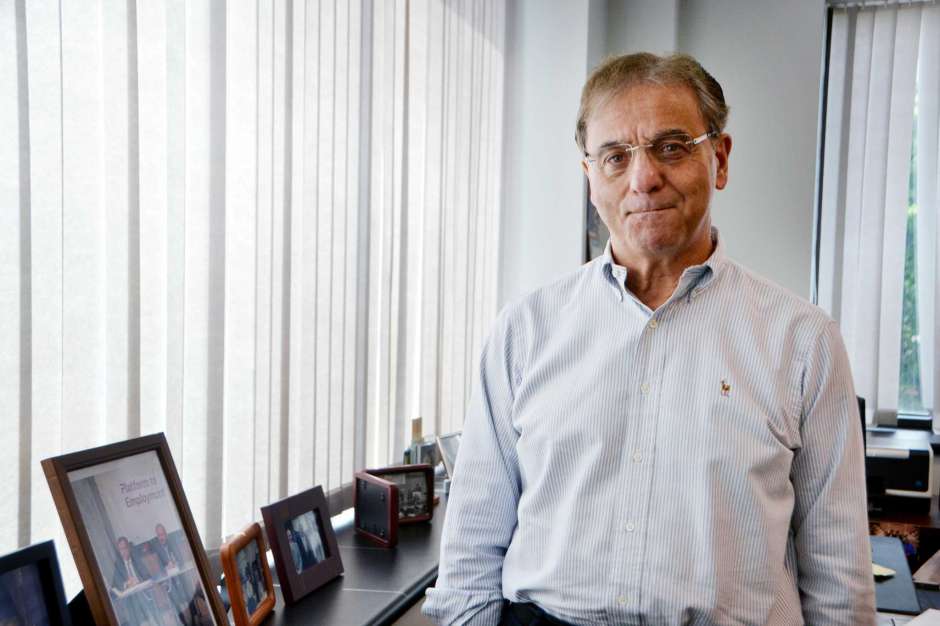CT Insider. Hugh Bailey, Sept 10, 2020
Joe Carbone, who knows a few things about the perils of unemployment, has some advice for people who find themselves out of a job: Don’t wait. Don’t get complacent. And don’t fall into the trap of long-term unemployment.
“There’s always a sense that my employer will call me back,” he said in a phone interview. “That happens in a normal recession, and it’s much more common now. But we need to understand that something happens when you pass the point (where your benefits run out). You need to change your mental approach.”
Carbone is president and CEO of The WorkPlace, which is based in Bridgeport and coordinates regional and statewide workforce development programs. It has been nationally recognized for its efforts, which have taken on a new salience amid a pandemic-induced employment crisis.
It’s vital, he says, to recognize the way employers view people who have been out of work for an extended period — as people who are higher risk and have less to offer than those who have a job or only recently became unemployed.
“It’s wrong, it’s unfair, it’s unjust,” he said. “But we would be foolish if we didn’t recognize it.”
The employment news lately has been grim, with some brighter spots mixed in. The U.S. jobless rate at the end of August at 8.4 percent is better than what had been predicted a few months earlier. Many of the layoffs that came at the start of the pandemic in March and April turned out to have been temporary.
But there are worrisome signs. According to Bloomberg News, “The ranks of the permanently unemployed — people who say they don’t expect to be called back to their job — continue to shoot up at a faster pace than the Great Recession.”
Combined with the lack of federal action on a new round of coronavirus stimulus, which the Senate has sat on even as the House passed a bill months ago, and the coming of cold weather that will curtail restaurant business even further, and there is serious cause for worry. But from the beginning, this has been an unprecedented challenge.
“In all prior recessions, we had time to prepare, not that we always did a great job of that,” Carbone said. “This time we don’t.”
The WorkPlace has developed a number of programs to help people get back into the workforce, including Platform to Employment, or P2E, which Carbone called a program “that recognizes market conditions and responds with market-driven solutions.” Businesses benefit from a risk-free chance to evaluate and consider hiring participants during a four-week work experience funded by the WorkPlace.
A new version is aimed specifically at people who lost their jobs because of COVID-19. People who take part receive mentoring, career counseling and job placement assistance at no cost. Like its earlier incarnation, P2E 2.0 has already shown signs of success.
“There can be a reluctance to make a hire until you’re more certain that this person has a higher probability of success,” Carbone said. “Once you can see that a person is motivated, they become a more reliable bet.”
Under any circumstances, anyone without a job is going to be competing against a glut of people who lost employment in a short period. And unlike the Great Recession, it hasn’t affected different job categories the same way, because higher-educated workers were more likely to have switched to remote working, while service employees, who do their jobs face to face, were more likely to be let go.
A recovery of those positions won’t happen until people feel safe going out again, and that won’t happen immediately upon introduction of a vaccine, whenever that might be. There’s no way to determine when most service-sector jobs could be recovered because so much of what we’re facing is unprecedented.
What hasn’t changed since the last recession is the challenge of joblessness itself.
“The notion that you need to have a job to get a job is not entirely wrong,” Carbone said. And it’s not true that people who have been out of work for an extended period are necessarily a worse bet for future employment. But that stigma can be hard to shake.
“Don’t wait for your benefits to expire,” he said. “Be willing to take less money, but get a job. Avoid the trap of long-term unemployment.

